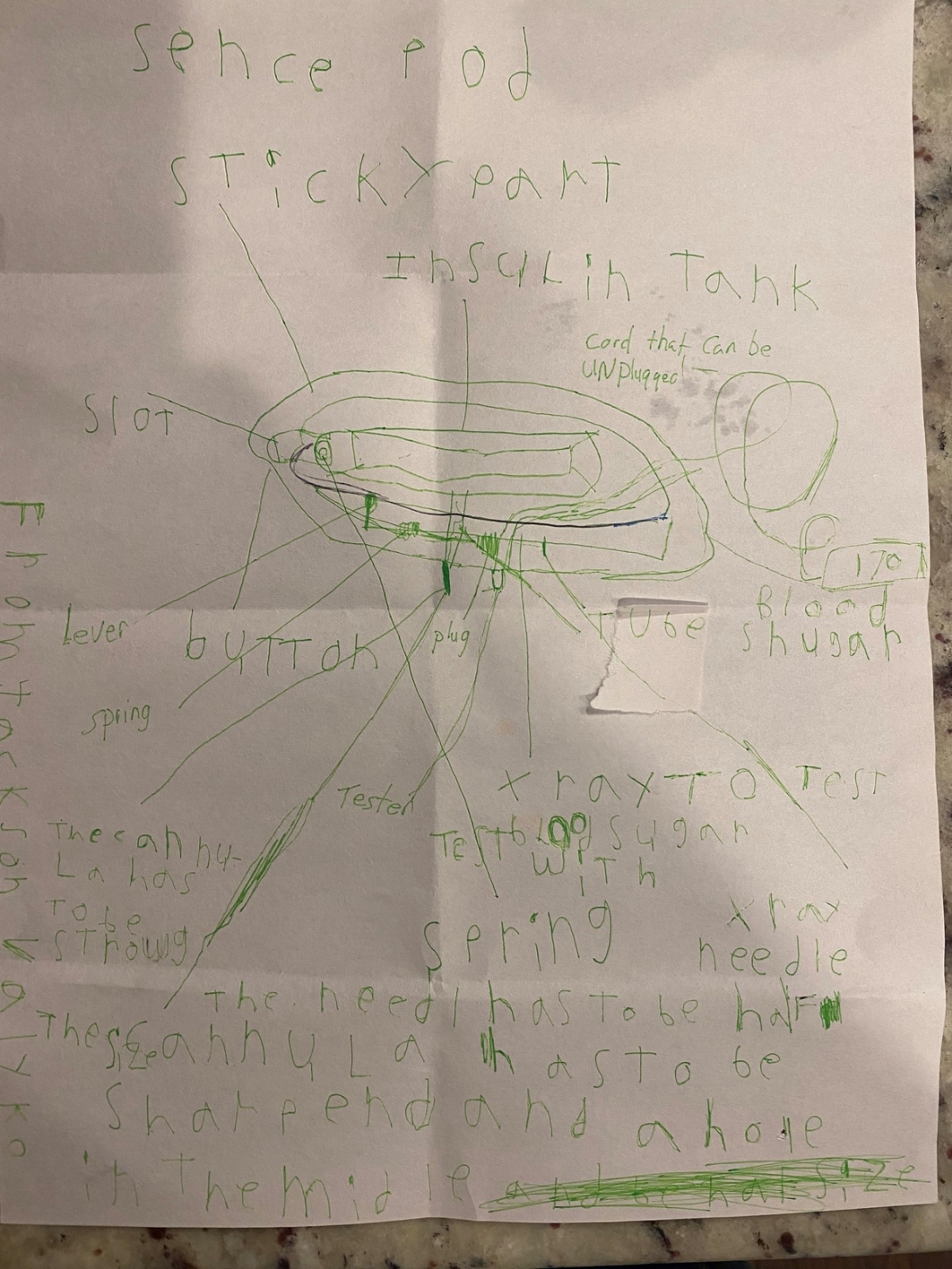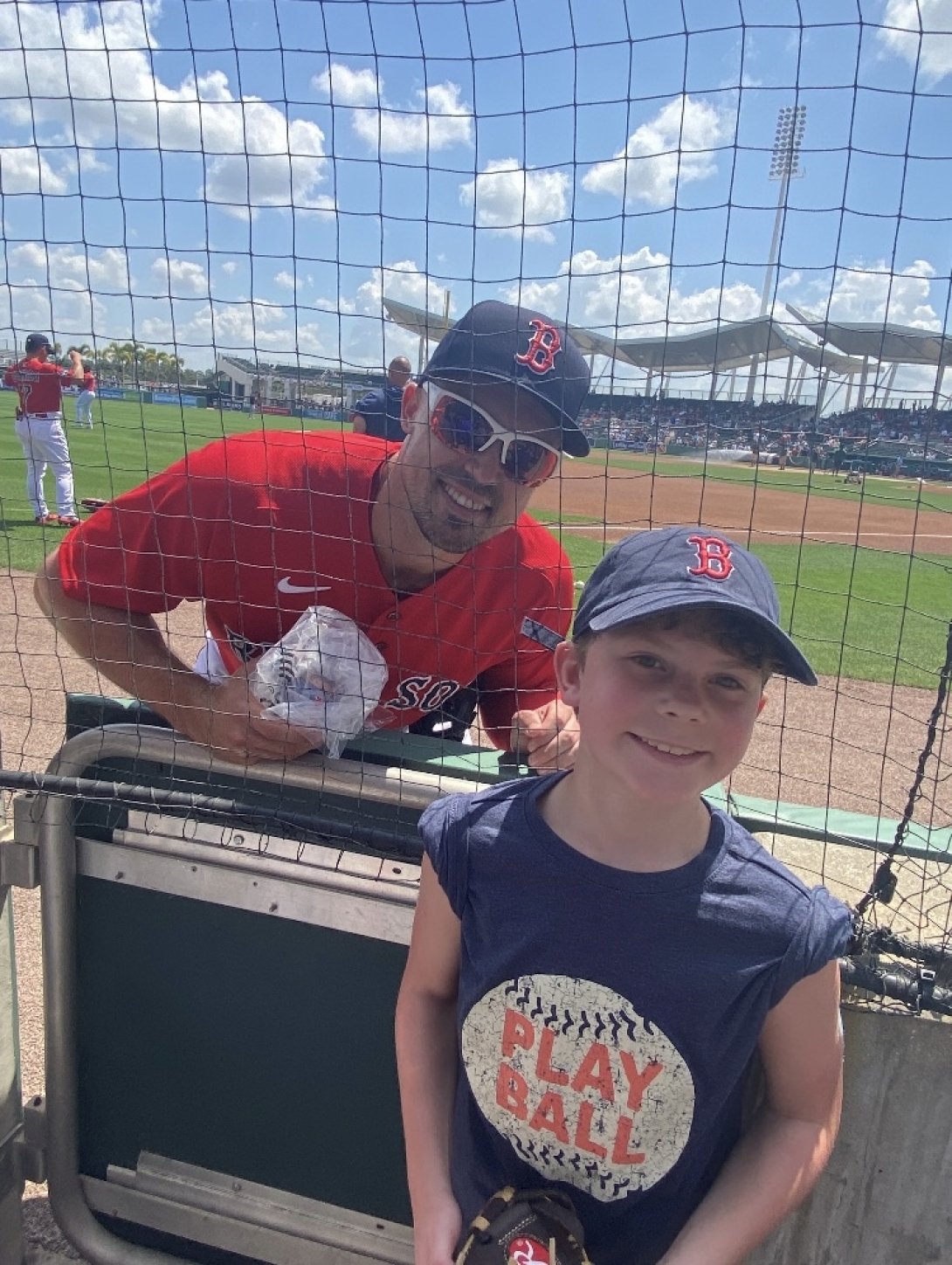A young patient's design helps people with diabetes live easier lives
5:00 AM
Author |

Jackson was only three years old when he was diagnosed with diabetes and doesn’t remember what life was like before having it.
Living with diabetes at such a young age comes with challenges, but those challenges have inspired Jackson, now 8 years old, to come up with ways for people like him to live a little easier.
Creating SensePod
Jackson, clearly an inventor in the making, drew a concept for what he calls the “SensePod” when he was only six years old.
The SensePod would eliminate the need for multiple devices being used to manage Type 1 diabetes.
It connects a pod and a sensor (an insulin pump and blood sugar monitoring device, respectively), making numerous finger pokes or needle sites a thing of the past.

It also has an insulin tank, easy to remove attachments and the ability to monitor the user’s blood sugar.
Users can also customize the design of the patches that keep the SensePod in place.
“I thought it would be a lot easier for people to use,” Jackson said.
"A lot of people make more things for Type 2 diabetes, and I wanted to make something for Type 1 diabetes.”
Jackson, who receives his care at University of Michigan Health C.S. Mott Children’s Hospital, is one of the many individuals who use multiple devices to manage their diabetes.
These devices can include wearable insulin pods, pumps, Continuous Glucose Monitors, and more.
Many of these also connect to a smartphone or other device.
While explaining how each of his works, Jackson demonstrates pricking his finger, then using an iPhone app to check his blood sugar levels.
A single device like the SensePod would also make it easier for Jackson to play his favorite sport: baseball.

He hopes to be a professional player someday and has already begun networking. Jackson and his family got the chance to meet Boston Red Sox player Adam Duvall, who also has Type 1 diabetes.
Jackson’s mom, Amanda Valyko, remembered Duvall exchanging gifts and spending time talking to Jackson about diabetes during one of the team’s spring training practices.
The SensePod has the support of Jackson’s provider and Mott pediatric endocrinologist, Joyce Lee, M.D., M.P.H., who’s impressed with how savvy he is at managing his diabetes at such a young age.
“There is so much more to do to reduce the burden and improve the quality of life for our patients with diabetes. Our patients and families love their devices but there are inconveniences like having to have two separate sites on the body to place the sensor and the insulin pump,” she said.
What's next?
The biggest thing Jackson hopes the SensePod will help other patients with is fear.
He knows all too well what it feels like to receive a diagnosis and how overwhelming it can be to learn how to manage diabetes.
But these days, he’s looking on the brighter side.
“It was really scary for a while, but after a few years I got better with it,” Jackson said. “I’m doing pretty well with it now.”
In the United States, more than 37 million people like Jackson live with diabetes and related diseases, with another 1.5 million being diagnosed every year.
The University of Michigan Health’s Caswell Diabetes Institute supports rigorous science that identifies new ways to control diabetes, prevents the complications of diabetes, and provides better care and health outcomes for people living with diabetes.
To do this, the institute sees it as essential to elevate the voice of patients and their families, ensuring that strategies to advance research and care are closely aligned with the goals of those living with, and affected by, these diseases in their daily lives.

Explore a variety of health care news & stories by visiting the Health Lab home page for more articles.

Department of Communication at Michigan Medicine
Want top health & research news weekly? Sign up for Health Lab’s newsletters today!





